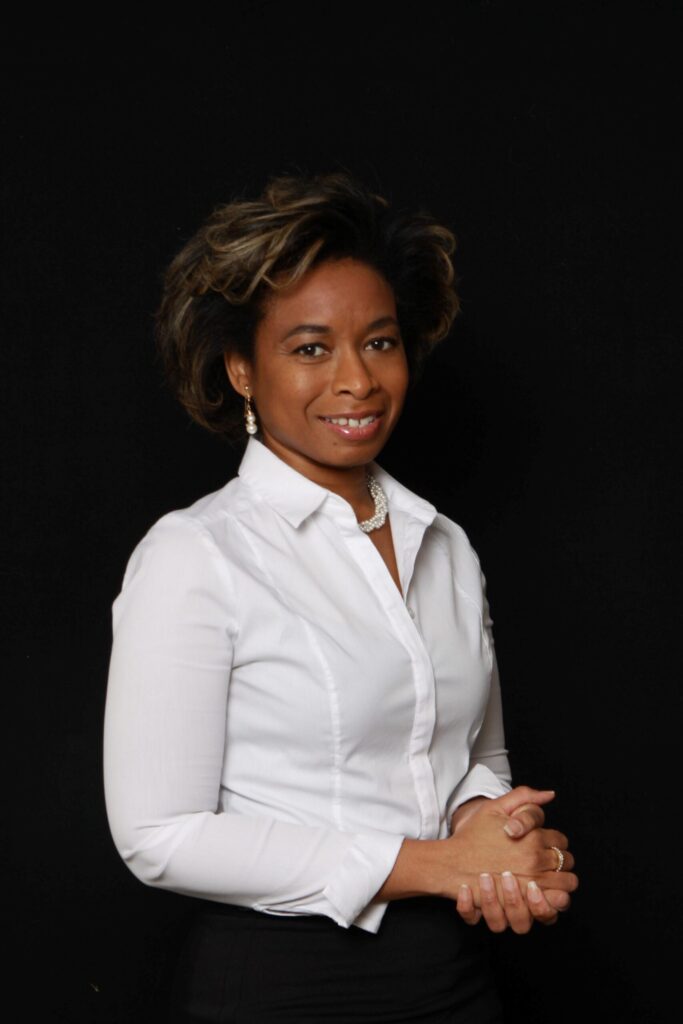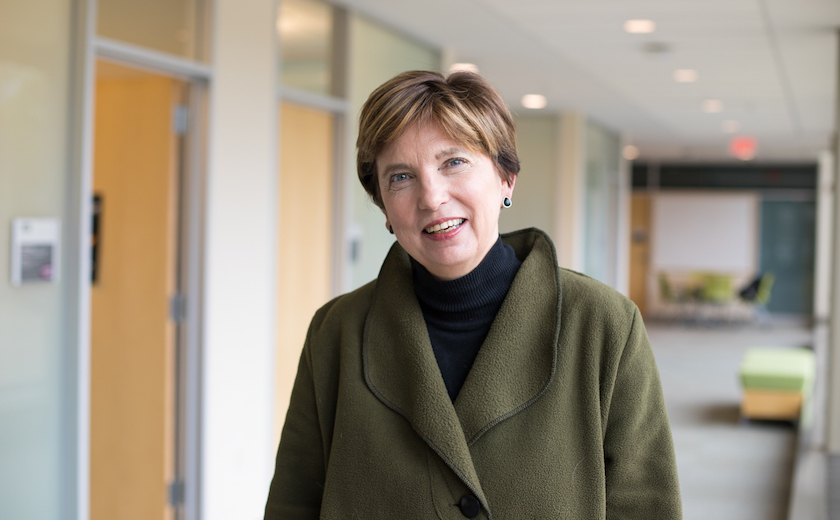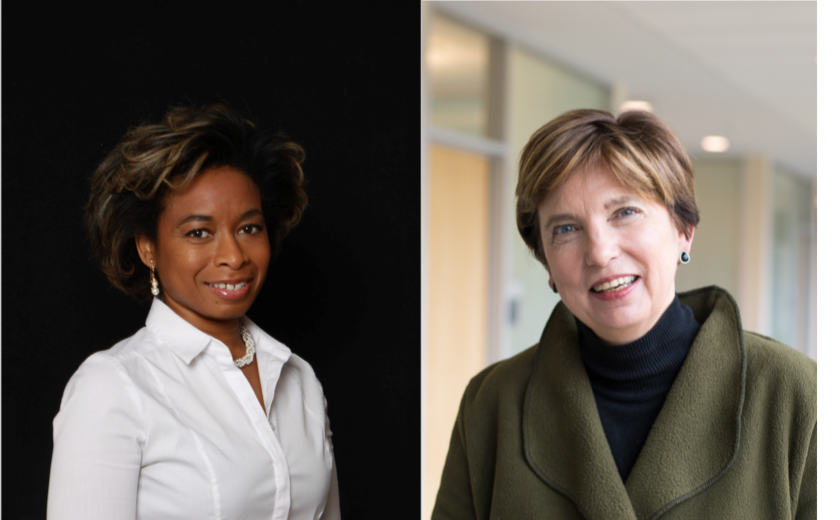Two important new Faculty of Theology courses are demonstrating yet again that Theology is one of the timeliest of disciplines, using its insights and understanding to respond to current crises.
Black Lives Matter in the Classroom, a Basic Degree-level course to be taught by Dr. Marie Green, will address how educators can become better aware of—and better able to respond to—systemic injustices facing Black students at school.
At the Advanced Degree level, meanwhile, Faculty member Dr. Hilda Koster will be teaching Eco-Feminism, New Materialism and Ecological Theology at a time when the pandemic continues to remind us that we are not immune, not disconnected from the world around us.

Many who see the course title Black Lives Matter in the Classroom may think of it as a unit coming out of OISE, but Dr. Green sees a strong theological underpinning to her course, and an equally strong justification for teaching it at a faculty of theology.
“In the eyes of God Black lives matter. We are all created in the image and likeness of God. The Black Lives Matter movement is, at its core, a human rights movement so it is absolutely possible — and necessary — to view this course through a theological lens.
“In this course we will challenge beliefs, assumptions, approaches, and biases,” says Dr. Green, who is the recipient of the Faculty’s 2020 Governor General’s Award. “Everyone has biases, and students will reflect on their impact on the classroom, and hopefully become motivated to be agents of change.”
Along with the usual readings and lectures, she says classes will also feature guest speakers who can offer up tangible examples of equity and inclusive education, examples that she says will be particularly beneficial to those who do not have a lived experience of racism or an understanding of the intergenerational harm of the legacy of slavery and other racist historical realities.
“We know that there’s a legacy of racism in Canada, and to deny that is to ignore the impact of residential schools, segregated schools, and more recently, streaming practices in public schools.”
The legacy, Green points out, manifests itself in many ways. Black students continue to be underrepresented in post-secondary institutions, for example, while also experiencing a significantly higher rate of suspensions in high school. At the same time, many Black high school students find themselves discouraged by teachers and administrators from pursuing more academic streams, limiting their future opportunities.
“Throughout 2020, we have seen violence against Black bodies so overtly displayed on our streets but there is a different kind of violence taking place in our schools and classrooms,” Green says. “It is the violence of low expectations, lack of validation, and lack of cultural affirmation. This course will equip educators and other practitioners with resources to help them apply the critical theory perspective needed to support Black student success.”
With a topic so clearly in the public eye following a summer of protests, Dr. Green expects difficult but constructive conversations where everyone has something to contribute and something to learn. “One of the benefits of teaching online,” she says, “is the ability to use Zoom breakout rooms, allowing students to have meaningful and engaging discussions, with the instructor able to visit all groups.
“I want to share tangible tools that all participants can use to address topics of equity and justice which is absolutely critical for student success.”
For Dr. Koster, Eco-Feminism, New Materialism and Ecological Theology “perfectly relates to the current moment because we are not separate from matter, organic or inorganic ” she says. “When we forget that very basic fact it comes back to haunt us. The pandemic we currently face has an animal origin, for example. When eco-systems are under constant attack, the resilience of species are weakened and viruses jump from animals to humans”.

While eco-theology began to come to the fore in the 1970s, with ecofeminism quickly emerging soon after in the 1980s, new materialism has emerged more recently, says Dr. Koster. And just as eco-feminism pushes back against hierarchical dualisms that value mind and spirit over matter and body, new materialism’s critical theory reminds us of the multiple ways human life is contextualized within the living biosphere and that the human species are part of and fully dependent upon the evolutionary ecology of the earth.
New materialism also reminds us that “matter is not passive; matter is dynamic and we need to think theologically about it,” Dr. Koster says. “Eco-feminism and new materialism offer two important, intersecting theoretical and activist movements addressing our current planetary crisis as it is marked by climate change, rapid degradations of eco-system, a staggering loss of bio-diversity and deepening ecological injustices. By revaluing the agency of other-than-human matter, both movements construct alternatives to typical western philosophical hierarchical dualisms.
“There are countless examples of dependence in in our current lives. I remember, for example, speaking with (then-Dean) Dr. Ginther in May, and he suggested that the Canadian/U.S border might be closed until June. That seemed shocking. It simply was unthinkable that we could not ‘control’ an inorganic virus. Here we are in December and the border remains closed. The question of course is whether we have learned to be more attentive to the more-than-human world with which we are entangled.”
Elaborating, she says, “this course studies new materialism in conversation with ecofeminist theology and ecological theology. The attention to ecofeminist thought is key because in analyzing the ways western thinkers have shaped a sense of matter as feminized, passive, or inert, both new materialism and theological responses to our planetary emergency (most notably climate change) are relying on ecofeminist methodologies and analyses. Theology is equally crucial, not only because it has shaped our attitude towards matter, but also because ultimately our current planetary predicament is a moral and spiritual crisis as much as it is a healthcare emergency. “
This means that theology, then, has a role to play in re-orienting us to “new, life-giving possibilities. To this end this course engages with both theology and ecology, bringing together discourses on divinity and earth, our common home, with the aim of kindling our sensitivity to non-human species and our interconnected physicality.
“This course starts with examining some key initiating ecofeminist voices, both in ecofeminist theory and in theology, shifting to new materialisms and the multi-vocal conversation with New Materialism in eco(feminist) theology (with special attention to the issue of race), and will put this conversation to use in relation to eco-justice concerns with resource extraction and climate change.”
Interim Dean John L. McLaughlin says these two courses are the most recent examples of St. Michael’s Faculty of Theology’s continued commitment to offer courses that address current societal challenges, allowing students to gain critical skills for use in the outside world.
“Theology may be timeless, but it is never static,” says Dr. McLaughin. “Our mission to serve the Church and the broader world means not only offering students a strong grounding in scripture and systematics and Church history. We also want them to be able to apply what they’ve learned in very practical ways. These two courses are clear examples of what I call applied theology.”
SMP3416HS Black Lives Matter in the Classroom runs Wednesdays, 19:00-21:00 in the Winter Semester.
SMT5604HS Eco-Feminism, New Materialism, and Ecological Theology runs Mondays, 17:00-19:00 in the Winter Semester.

